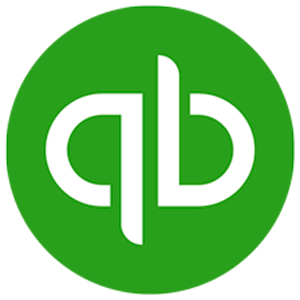There’s an unprecedented shift taking place in a timeless industry that, in many ways, has been stagnant for many years.
Cloud-based tech is changing the daily grind of accountants and bookkeepers, to the extent that many are no longer working on a desktop computer, in an office building, Monday to Friday, from nine to five.
In our series, In the Clouds, we’ll dive deep into the world of cloud accounting in hopes of providing the answers not yet easily found online. We’re meeting with some of the leading voices in this space to learn what it means to work “in the clouds”.
Ryan Lazanis is a prominent leader in this space. He founded Xen accounting: one of Canada’s first cloud accounting firms. Within five years his firm was acquired by a global professional services provider.

Now, on the other side, Ryan’s current venture Future Firm provides resources (like this article, featuring us, and 130 other cloud accounting software apps) and mentorship to current cloud accountants and bookkeepers wanting to modernize their practices.
Rotessa: Let’s start with answering the question of ‘what is cloud accounting?’
Ryan Lazanis: When that term (cloud accounting) first started, it was just about using cloud-based apps. I think it has now evolved to more than just using cloud technology.
For me, a cloud accounting firm and a modern accounting firm is the same thing — where you have to be using technology that helps automate your processes. You have to have some sort of business model in place that is scalable, and getting business from more than just referrals.
You don’t have to necessarily be a fully remote firm to be a cloud accounting firm, in my opinion. I know of some firms that have an amazing culture, that are very modern, and have a physical presence. Different strokes for different folks.
You just have to be applying some modern practices to your firm to be what I consider a cloud accounting firm.
Rotessa: Is there still hesitation amongst accountants and bookkeepers about going completely cloud-based?
RL: I don’t think you need to be completely cloud-based in this day and age. I think what is preventing it is the lack of thought put into a business model.
If you look at most firms from 10 to 20 years ago, you would take any work that comes at you. You’ll take this work, that work, whether it fits in your wheelhouse or doesn’t – just no model whatsoever. Therefore, there is no efficiency, nothing is streamlined, and it is just about churning out files.
What I think is preventing people from adopting that more modern approach is being intentional about the model you want to have. Like, have a few core services that you offer and do those really well and turn away the things that don’t fit into that approach.
Rotessa: It’s interesting that you say you don’t really identify as an accountant, but more as an entrepreneur. Do you think that is a common theme throughout the cloud accounting space?
RL: I would say I am on the far end of the spectrum of not liking accounting and tax. A lot of the cloud accounting firm owners are more entrepreneurial in nature, in my opinion, than more of the traditional firm owners – I am making a generalization here, but that is kind of what I have noticed. I think a lot more of those traditional firms are practitioners and they’re doing tax returns and getting files out the door.
Cloud accounting firm owners are rethinking a business model. They’re rethinking how accounting should be done. They’re focusing on the customer and determining where there is friction and how they can alleviate that through technology processes.
Rotessa: What do you see as the future of cloud accounting?
RL: It’s hard to predict the future, but we are seeing more and more automation happening.
There has been a lot of buzz for the last few years about AI and blockchain taking over everybody’s job. Is that really going to happen? It hasn’t panned out yet, but it is transforming the industry and the way things are done. But, who knows how long it will actually take to completely replace someone, if ever.
What is changing is client expectations. Clients are expecting an easier experience now – an uber experience. When you can just pick up your phone, press a button, and something comes to you immediately, clients expect that. You are seeing firms having to tailor their approach to changing expectations.
I think the focus will be on the customer journey, identifying the points of friction, eliminating that friction, and trying to make the customer experience more enjoyable in the accounting process.
Subscribe for updates to In the Clouds.
Share this content with a friend:
A better way to get paid
Withdraw money directly from your customer’s bank account when their payments are due. Schedule one-time or recurring payments to get paid on time.

